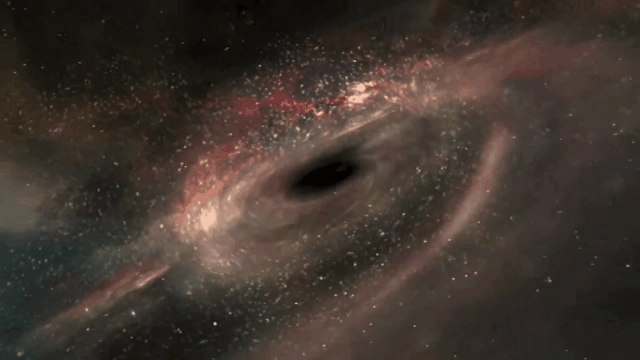Cosmology, the study of the origin, evolution, and eventual fate of the universe, is a field that has captivated human curiosity for centuries. It delves into the fundamental questions about the nature of reality and our place within it. From ancient civilizations pondering the stars to modern scientists utilizing cutting-edge technology, the quest to comprehend the cosmos remains a central pursuit of human intellect.
The Visible Universe
Definition and Characteristics
The visible universe refers to the observable portion of the cosmos that we can detect through electromagnetic radiation. It encompasses galaxies, stars, planets, and other celestial objects that emit or reflect light. Our understanding of the universe is largely based on observations from telescopes and other astronomical instruments.
What We Can Observe
Through telescopes, astronomers have mapped out vast regions of the universe, revealing galaxies, clusters, and cosmic phenomena. These observations have provided valuable insights into the structure, composition, and dynamics of the cosmos.
Limitations of the Visible Universe
Despite the remarkable progress in observational astronomy, the visible universe represents only a fraction of the entire cosmic landscape. It is limited by factors such as the speed of light, the age of the universe, and the expansion of space itself. Beyond its boundaries lie realms that remain shrouded in mystery.
Exploring Beyond the Visible Universe

Concept of the Observable Universe
The observable universe is the portion of the entire universe that can be observed from Earth at the present time. It extends to the furthest reaches of space from which light has had time to reach us since the Big Bang, approximately 13.8 billion years ago.
What Lies Beyond
Beyond the observable universe lies uncharted territory, stretching into realms beyond our current understanding. This vast expanse holds secrets yet to be uncovered, including regions obscured by cosmic phenomena like dark matter and dark energy.
Tools and Methods for Exploration
To probe the depths of the cosmos, scientists employ a variety of tools and techniques, including telescopes, space probes, and particle accelerators. These instruments enable them to gather data, conduct experiments, and formulate theories about the nature of the universe.
Dark Matter and Dark Energy
Understanding Dark Matter
Dark matter is a mysterious substance that comprises a significant portion of the total mass in the universe. Unlike ordinary matter, it does not emit, absorb, or reflect light, making it invisible to traditional forms of detection. Yet, its presence is inferred through its gravitational effects on visible matter and cosmic structures.
Role of Dark Energy
Dark energy is an even more enigmatic force that drives the accelerated expansion of the universe. Its precise nature remains elusive, but its existence is supported by observational evidence, such as the observed redshift of distant galaxies. Dark energy constitutes a substantial portion of the universe’s energy density, shaping its overall dynamics.
Their Significance in Cosmology
Dark matter and dark energy play crucial roles in shaping the large-scale structure of the universe and influencing its evolution over time. Understanding their properties and interactions is essential for constructing accurate models of cosmic phenomena and deciphering the fundamental laws governing the cosmos.
Multiverse Theories
Overview of Multiverse Theories
Multiverse theories propose the existence of multiple universes, each with its own set of physical laws and properties. These theories arise from various interpretations of quantum mechanics, cosmological principles, and mathematical frameworks.
Different Interpretations and Models
There are several different interpretations of the multiverse concept, including the inflationary multiverse, the many-worlds interpretation, and the string landscape. Each model offers unique insights into the nature of reality and the possibility of other universes beyond our own.
Implications for Our Understanding of the Universe
Multiverse theories challenge traditional notions of a singular, deterministic universe and open up new avenues for exploration and speculation. They raise profound questions about the nature of existence, the limits of observation, and the ultimate fate of the cosmos.
Theoretical Cosmology
Theoretical cosmology encompasses a wide range of concepts and frameworks aimed at explaining the origin and evolution of the universe. From classical theories of gravitation to cutting-edge quantum models, theoretical physicists seek to reconcile fundamental forces and phenomena on cosmic scales.
Concepts like String Theory and Quantum Cosmology
String theory, a theoretical framework in particle physics, posits that the fundamental constituents of matter are not point-like particles but rather one-dimensional strings vibrating at different frequencies. Quantum cosmology, on the other hand, applies the principles of quantum mechanics to the study of the universe as a whole, addressing questions about its beginning and end.
Their Role in Pushing the Boundaries of Knowledge
String theory and quantum cosmology represent bold attempts to unify the fundamental forces of nature and reconcile disparate theories of physics. While still speculative in many respects, these frameworks offer tantalizing glimpses into the underlying structure of reality and the potential for revolutionary breakthroughs in our understanding of the cosmos.
Cosmological Mysteries

Unanswered Questions in Cosmology
Despite centuries of inquiry, cosmologists grapple with numerous unresolved mysteries about the universe. Questions about the nature of dark matter and dark energy, the origin of cosmic inflation, and the ultimate fate of the cosmos continue to elude definitive answers.
Challenges and Ongoing Research
The pursuit of cosmic knowledge is fraught with challenges, including technological limitations, theoretical ambiguities, and philosophical conundrums. Nevertheless, scientists persevere in their quest to unlock the secrets of the universe through observation, experimentation, and theoretical speculation.
Intriguing Possibilities and Speculations
The realm of cosmology is rife with intriguing possibilities and speculative hypotheses, from the existence of parallel universes to the notion of a cyclic or eternal cosmos. These ideas fuel the imagination and inspire further investigation into the nature of reality on cosmic scales.
Future Prospects
Advancements in Technology and Observation
Advances in technology, such as next-generation telescopes, gravitational wave detectors, and particle accelerators, promise to revolutionize our understanding of the universe. These tools enable scientists to peer deeper into space, probe the fundamental forces of nature, and test bold new theories about the cosmos.
Potential Breakthroughs on the Horizon
With each new discovery and technological innovation, the boundaries of cosmological knowledge expand, revealing new vistas of exploration and discovery. From unlocking the secrets of dark matter to deciphering the nature of space-time itself, the future holds the promise of profound insights into the mysteries of the universe.
The Evolving Landscape of Cosmological Exploration
As our understanding of the cosmos evolves, so too does the way we approach the study of cosmology. Interdisciplinary collaborations, computational simulations, and data-driven analyses are transforming the field, ushering in an era of unprecedented discovery and exploration.
Conclusion
In conclusion, cosmology offers a window into the vast and awe-inspiring universe in which we live. From the visible realm of galaxies and stars to the unseen domains of dark matter and dark energy, the cosmos presents a tapestry of complexity and wonder. As we continue to probe its mysteries, we embark on a journey of discovery that transcends the boundaries of space and time.
FAQs
What is the significance of cosmology in understanding our place in the universe?
Cosmology provides insights into the origins, evolution, and ultimate fate of the universe, offering context for humanity’s existence within the cosmic framework.
How do scientists study phenomena beyond the visible universe?
Scientists utilize a variety of observational techniques, theoretical models, and experimental methods to explore realms beyond the visible universe, including the study of dark matter, dark energy, and multiverse theories.
What are some unanswered questions in cosmology?
Unanswered questions in cosmology include the nature of dark matter and dark energy, the origin of cosmic inflation, the existence of parallel universes, and the ultimate fate of the cosmos.
What role do theoretical frameworks like string theory and quantum cosmology play in cosmological research?
Theoretical frameworks such as string theory and quantum cosmology provide theoretical frameworks for understanding the fundamental forces and phenomena of the universe, pushing the boundaries of knowledge and inspiring new avenues of research.
What are the prospects for future advancements in cosmological exploration?
Future advancements in cosmological exploration hold the promise of profound insights into the nature of the universe, driven by advancements in technology, theoretical breakthroughs, and interdisciplinary collaborations.










